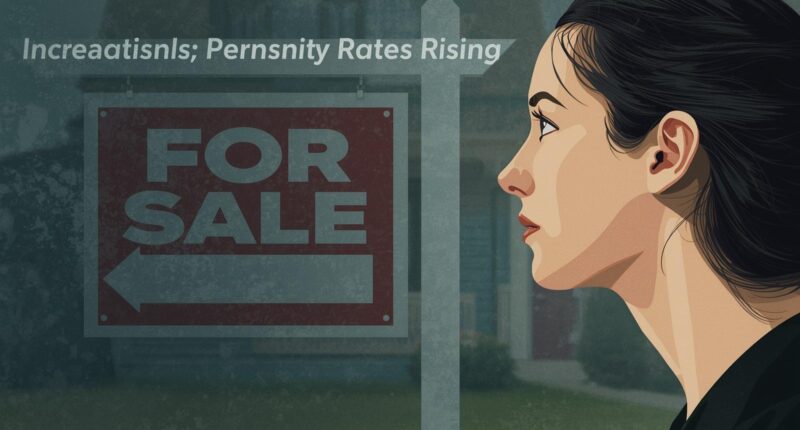How Rising Interest Rates Affect Home Buyers in 2025
Interest rates are one of the most critical factors influencing the housing market. When rates increase, borrowing costs rise, directly impacting affordability for individuals looking to purchase a home. Understanding how rising interest rates affect home buyers is essential for anyone planning to buy property in 2025.
Why Rising Interest Rates Matter for Home Buyers
Mortgage rates determine how much buyers pay each month and over the lifetime of their loans. Even a small percentage increase in interest rates can significantly change affordability. Knowing how rising interest rates affect home buyers helps future homeowners prepare for financial decisions and navigate the real estate market effectively.
How Rising Interest Rates Affect Home Buyers: Key Impacts
1. Reduced Affordability
When interest rates rise, monthly mortgage payments increase. This reduces how much home buyers can afford and may push some out of the market entirely.
2. Lower Purchasing Power
One of the clearest examples of how rising interest rates affect home buyers is purchasing power. Higher rates mean buyers qualify for smaller loan amounts, forcing them to reconsider the size, type, or location of the home they purchase.
3. Market Slowdowns
With fewer qualified buyers, the housing market tends to slow down. Sellers may reduce prices or offer incentives to attract buyers, changing overall market dynamics.
4. Shift Toward Adjustable-Rate Mortgages
Some buyers turn to adjustable-rate mortgages (ARMs) when rates rise. While ARMs often start with lower initial rates, they come with long-term risks if rates continue increasing.
5. Increased Competition for Rentals
As buying becomes more expensive, many turn to renting. This trend shows how rising interest rates affect home buyers indirectly by driving demand in the rental market.
Table: How Rising Interest Rates Affect Home Buyers
| Factor | Impact on Buyers | Impact on Market |
|---|---|---|
| Monthly Payments | Higher mortgage costs | Decreased affordability |
| Loan Approval Amount | Lower qualification levels | Buyers choose smaller/cheaper homes |
| Home Prices | Potential cooling effect | Slower price appreciation |
| Mortgage Choices | More buyers shift to ARMs | Riskier long-term commitments |
| Rental Market | Increased demand as buying slows | Higher rental prices and occupancy |
This table clearly outlines how rising interest rates affect home buyers and the overall real estate market.
Strategies for Home Buyers in a High-Rate Environment
While interest rates may rise, there are ways to reduce the impact:
-
Improve your credit score – Higher scores mean better loan terms.
-
Increase your down payment – Borrow less and reduce monthly payments.
-
Shop around for lenders – Compare rates from banks, credit unions, and online lenders.
-
Consider shorter loan terms – A 15-year mortgage may have lower rates than a 30-year loan.
-
Lock in rates early – If rates are expected to rise, securing a fixed rate quickly can save money.
Internal and External Resources
👉 For more real estate insights, read:
10 Essential Tips for First-Time Home Buyers
👉 For official mortgage rate data, visit Freddie Mac’s Primary Mortgage Market Survey (PMMS):
Freddie Mac Mortgage Rate Data
Final Thoughts on How Rising Interest Rates Affect Home Buyers
The discussion on how rising interest rates affect home buyers shows that affordability, purchasing power, and market dynamics are all heavily influenced by interest rates. While rising rates can make homeownership more challenging, informed buyers can still find opportunities by improving credit, saving larger down payments, and carefully comparing mortgage options.
By understanding these impacts and planning ahead, buyers in 2025 can make smarter decisions despite a higher interest rate environment.









